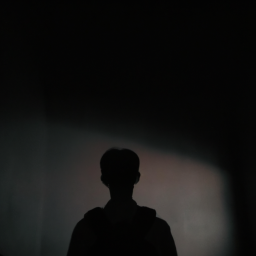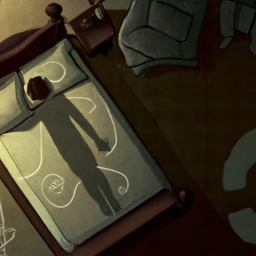To borrow from a well-known phrase, “I have a dream.”
But what does it mean if I don’t have dreams? As someone who rarely remembers their dreams, I’ve often wondered if this is a sign of something more significant.
Dreaming is an essential part of the sleep cycle, and it’s natural to assume that everyone experiences it. However, that’s not always the case. Some people don’t dream or don’t remember their dreams, leaving them wondering if they’re missing out on something important.
In this article, we’ll explore the science of dreaming, the reasons why some people don’t remember their dreams, and the potential implications of not dreaming. We’ll also discuss techniques for improving dream recall and the connection between dreams and creativity.
So, whether you’re a frequent dreamer or someone who rarely remembers their dreams, read on to learn more about the world of dreaming.
Key Takeaways
- Not having dreams or not remembering them can be a sign of underlying sleep disorders or health issues.
- Dreams are a reflection of our subconscious mind and can offer valuable insights into our innermost thoughts and emotions.
- Keeping a dream journal can improve dream recall, increase self-awareness, and improve problem-solving skills.
- Practicing good sleep hygiene and prioritizing sleep can potentially lead to more vivid dreams and better overall sleep quality.
The Science of Dreaming
You’re missing out on fascinating brain activity if you don’t have dreams, but don’t worry, it’s not uncommon.
Dreaming is actually a complex process that occurs during the REM (Rapid Eye Movement) stage of sleep. During this stage, the brain is highly active and can even be more active than when we’re awake.
There are a few different theories as to why we dream, but one of the most widely accepted is that it helps us process and consolidate memories. Essentially, when we dream, we’re processing the events and emotions of our day and committing them to long-term memory.
So, if you’re not having dreams, it could be a sign that your brain isn’t processing information as effectively as it could be. Understanding sleep cycles can help shed some light on this phenomenon and give us a better idea of what’s going on in our brains while we sleep.
Understanding Sleep Cycles
I find it fascinating to learn about the stages of sleep and how they affect our overall health and well-being.
Understanding the different phases of sleep, from light sleep to deep sleep, can help us improve the quality of our rest.
Additionally, exploring the relationship between sleep and dreams can offer insight into our subconscious thoughts and emotions.
Adjusting the paragraph structure in this way makes it easier to read and understand. It also helps to emphasize the main points being made.
The Stages of Sleep
When you’re sleeping, your brain goes through different stages of sleep, including non-REM and REM sleep, which are essential for overall health and well-being. In non-REM sleep, the body goes through three stages where the brain waves slow down and become more synchronized. This is the time when the body is repairing and regenerating itself. The first stage is the transition from wakefulness to sleep, the second stage is a light sleep where the body temperature drops and the heart rate slows down, and the third stage is a deep sleep where the body is at its most relaxed state.
On the other hand, REM sleep is when the brain is most active and dreams occur. It is during this stage that the brain is processing emotions, memories, and information from the previous day. REM sleep is also important for cognitive function, learning, and creativity. Without it, our brains may not be able to function properly. It is important to note that not everyone remembers their dreams, but it doesn’t necessarily mean they aren’t dreaming.
Moving on to the next section about the relationship between sleep and dreams, it’s important to understand that dreams can occur during both non-REM and REM sleep, and they serve different purposes.
The Relationship Between Sleep and Dreams
As I drift off into a peaceful slumber, my mind enters a mysterious world of vivid, surreal images and emotions that can unlock the deepest parts of my psyche. This world is the realm of dreams, a phenomenon that has fascinated humans for centuries.
Although scientists have yet to fully understand the purpose of dreaming, it’s clear that sleep and dreams are intimately connected. During the night, our brains go through several cycles of sleep, each with its own unique brainwave patterns.
It’s during the Rapid Eye Movement (REM) stage of sleep that most of our dreaming occurs. This stage is characterized by rapid eye movements, increased brain activity, and muscle paralysis. Researchers believe that this stage of sleep is essential for our mental health and wellbeing, and that dreaming is a crucial part of this process.
However, not everyone remembers their dreams, and there are several common reasons for this phenomenon.
Common Reasons for Not Remembering Dreams
You might not realize it, but not remembering your dreams is actually quite common. In fact, it’s estimated that up to 50% of people don’t remember their dreams on a regular basis. There are several reasons why this might be the case, including:
| Reason | Explanation | Solution |
|---|---|---|
| Sleep disturbances | Interrupted sleep or waking up frequently can interfere with dream recall | Improve sleep hygiene |
| Medications | Certain medications can affect dreaming and dream recall | Speak with your doctor about adjusting medications |
| Stress | High levels of stress can interfere with dream recall | Practice stress-reducing techniques such as meditation or exercise |
It’s important to note that not remembering your dreams doesn’t necessarily mean anything is wrong. However, if you consistently have trouble remembering your dreams and it’s causing you distress, it may be worth speaking with a healthcare professional to rule out any underlying issues.
When Lack of Dreams Can Indicate an Issue
Not remembering your dreams can be a sign of underlying emotional distress, causing feelings of confusion and frustration. However, not having dreams at all can also indicate an issue.
Dreams are a natural part of the sleep cycle, and if you consistently do not remember any dreams, it may be a sign of a sleep disorder or other health issue. Some possible causes of not having dreams include sleep apnea, medication side effects, or even substance abuse.
It’s important to speak with a healthcare professional if you consistently do not remember your dreams, as it could indicate a larger issue that needs to be addressed. In the meantime, practicing good sleep hygiene and prioritizing sleep can help improve overall sleep quality and potentially lead to more vivid dreams.
And if you do remember your dreams, keeping a dream journal can be a helpful tool in understanding and processing your subconscious thoughts and emotions.
The Role of Dream Journaling
I highly recommend starting a dream journal if you’re someone who wants to remember your dreams.
To begin, get a small notebook and pen that you can keep by your bed. Write down anything you can remember from your dreams, even if it’s just a feeling or a single image.
Keeping a dream journal can help you better understand your subconscious mind and give you insight into your waking life.
How to Start a Dream Journal
Starting a dream journal is a helpful way to document your dreams and improve your dream recall, but have you ever wondered why it’s important to do so? Dreams are a reflection of our subconscious mind and can provide insight into our thoughts, emotions, and experiences. By keeping a record of our dreams, we can analyze and interpret them to gain a better understanding of ourselves.
To start a dream journal, all you need is a notebook and a pen. Keep it by your bedside and make it a habit to write down your dreams as soon as you wake up. Don’t worry about spelling or grammar, just focus on recalling as much detail as possible. You can also use a table format to organize your dreams and identify recurring themes or symbols. Here’s an example:
| Date | Time | Dream Description |
|---|---|---|
| 03/15/21 | 3:00 AM | Flying over a city, felt free and exhilarated |
| 03/16/21 | 5:30 AM | Being chased by a monster, felt scared and helpless |
| 03/17/21 | 4:45 AM | Talking to a loved one who passed away, felt comforted and at peace |
By keeping a dream journal, you can unlock the hidden meanings behind your dreams and gain valuable insights into your subconscious. So why not give it a try and see where your dreams take you?
Benefits of Keeping a Dream Journal
Keeping a dream journal can offer you valuable insights into your innermost thoughts and emotions. Here are three benefits of keeping a dream journal that I’ve personally experienced:
-
Increased self-awareness: By recording my dreams, I’ve been able to identify recurring themes and patterns in my subconscious. This has helped me gain a better understanding of my fears, desires, and motivations.
-
Improved problem-solving skills: Dreams often present us with symbolic representations of real-life problems. By analyzing my dreams, I’ve been able to come up with creative solutions to challenges that I may not have considered otherwise.
-
Enhanced creativity: Dreams can be a source of inspiration for artists, writers, and other creative individuals. By keeping a dream journal, I’ve been able to capture and explore the vivid imagery and emotions that arise in my dreams, which has helped me generate new ideas and perspectives.
By practicing techniques for improving dream recall, you can increase the frequency and clarity of your dreams, making them easier to record in your dream journal.
Techniques for Improving Dream Recall
You absolutely must prioritize consistent and intentional dream journaling if you want to enhance your ability to recall your dreams. One way to do this is to keep a notebook or recording device by your bed to immediately jot down or voice-record any dream fragments you remember upon waking. It’s important to do this as soon as possible, as dreams tend to fade quickly from memory.
Additionally, try setting an intention before going to sleep to remember your dreams and make it a habit to review your dream journal regularly, looking for patterns or themes that may emerge.
Improving your dream recall can not only lead to a better understanding of your subconscious thoughts and emotions, but it can also enhance your creativity. Dreams have been a source of inspiration for artists, writers, and musicians for centuries. By paying attention to the details of your dreams and exploring their meanings, you may unlock new ideas and insights that can be applied to your creative endeavors.
So, don’t underestimate the power of your dreams and make a conscious effort to remember them.
The Connection Between Dreams and Creativity
I find it fascinating how dreams can inspire creativity and innovation. As a writer myself, I often draw inspiration from my dreams and use them as a starting point for my stories.
Many famous creatives have also been known to draw inspiration from their dreams, including Salvador Dali and Mary Shelley. This makes dreams an important aspect of the creative process.
How Dreams Can Inspire Art and Innovation
Imagine discovering a world of creativity and innovation that can be unlocked through the inspiration of your dreams, where the possibilities are endless and the only limit is your own imagination. This is the reality for many artists and innovators who have found inspiration in their dreams. Dreams can provide a unique source of creativity and innovation, as they allow your mind to explore ideas and concepts that may not be accessible during waking hours.
To better understand the connection between dreams and creativity, let’s take a look at a table that outlines some of the ways dreams can inspire art and innovation:
| Ways Dreams Can Inspire | Examples |
|---|---|
| Provide new ideas | Paul McCartney’s "Yesterday" |
| Spark imagination | Salvador Dali’s surrealism |
| Solve problems | Elias Howe’s sewing machine |
| Enhance creativity | Mary Shelley’s "Frankenstein" |
| Generate emotions | Edgar Allan Poe’s poetry |
As you can see, dreams have played a significant role in inspiring some of the greatest works of art and innovation. In the next section, we will explore some examples of famous creatives who drew inspiration from their dreams.
Examples of Famous Creatives Who Drew Inspiration from Their Dreams
Get ready to be amazed by the incredible works of art and innovation that were inspired by dreams, as we explore some examples of famous creatives who tapped into their subconscious minds for inspiration.
Salvador Dali, one of the most renowned surrealist artists of all time, often drew inspiration from his dreams. His iconic painting, ‘The Persistence of Memory,’ was reportedly inspired by a dream in which he saw melting clocks. Dali’s dreamlike and surrealistic style was heavily influenced by his subconscious mind, which he believed was a powerful tool for creativity.
Another famous creative who was inspired by his dreams was the inventor and scientist, Nikola Tesla. Tesla often had vivid and detailed dreams that he believed were messages from the universe. In fact, he claimed that many of his groundbreaking inventions, including the alternating current motor, were directly inspired by his dreams. Tesla saw his dreams as a way to tap into the infinite intelligence of the universe, and he believed that they were essential for his creative process.
As we move into the next section about cultural perspectives on dreams, it’s important to note that not all cultures view dreams in the same way.
Cultural Perspectives on Dreams
I find the topic of cultural perspectives on dreams fascinating.
Dream interpretation varies greatly across different cultures, and it’s interesting to learn about the different meanings and symbols that are assigned to certain dreams.
Additionally, many spiritual practices incorporate dreams as a way to connect with the divine or gain insight into one’s own psyche.
Understanding these cultural perspectives on dreams can provide valuable insight into the beliefs and practices of different societies.
Dream Interpretation in Different Cultures
Dream interpretation varies greatly across cultures, with some placing a great deal of importance on interpreting their dreams while others view them as insignificant.
In some cultures, dreams are believed to hold important messages and can even be seen as prophecies. For example, in ancient Egypt, dreams were often interpreted by priests who believed that they held clues about the future.
In contrast, some Native American tribes view dreams as a way to connect with their ancestors or spirits. They believe that dreams can provide guidance and insight into their daily lives.
In other cultures, dreams are simply seen as a result of one’s thoughts and experiences from the day. For instance, in Western cultures, dreams are often viewed as a way for the brain to process information and emotions. Dreams can be influenced by a person’s stress levels, fears, and even what they eat before bed.
Despite these cultural differences, one thing is certain: dreams have been a topic of fascination for centuries and continue to intrigue people to this day. The role of dreams in spiritual practices is just one of the many ways that people have sought to understand the mysterious world of dreams.
The Role of Dreams in Spiritual Practices
You might be surprised to learn just how significant dreams can be in spiritual practices, with some cultures even believing that they hold the power to communicate with the divine in profound ways.
In many religions, dreams are considered a way for the divine to speak to us or for the soul to communicate with the conscious mind. For example, in ancient Egypt, dreams were seen as a way to receive messages from the gods, and in Hinduism, dreams are believed to reveal important insights about the nature of reality.
The use of dreams in spiritual practices is not limited to ancient cultures, either. Many modern religions and spiritual practices also place a strong emphasis on dreams. For example, some Christian denominations believe that dreams are a way for God to communicate with us, while many Native American traditions use dream catchers to capture and interpret dreams.
As we continue to explore the role of dreams in spirituality, it’ll be interesting to see how our understanding of their significance evolves in the future of dream research.
The Future of Dream Research
Imagine discovering groundbreaking research on the power of dreams and how they can shape our future. As someone who doesn’t often remember their dreams, I’ve always been curious about the significance of dreaming. Recent studies have shown that dreaming can have a significant impact on our emotional and mental health, problem-solving abilities, and even our physical well-being.
One interesting area of dream research is lucid dreaming, where the dreamer becomes aware that they are dreaming and can actively participate in the dream. This has led to the development of techniques to induce lucid dreaming, such as reality checks and dream journaling. The potential applications of lucid dreaming range from enhanced creativity to therapeutic interventions for mental health disorders. As the field of dream research continues to advance, it will be exciting to see how our understanding of dreams and their potential benefits evolves.
| Column 1 | Column 2 | Column 3 | ||
|---|---|---|---|---|
| Dreams can help improve our emotional and mental health | Dreams can help improve our problem-solving abilities | Dreams can have a significant impact on our physical well-being | ||
| Lucid dreaming can enhance creativity | Lucid dreaming can be used for therapeutic interventions for mental health disorders | Dream journaling is a technique to induce lucid dreaming | ||
| Reality checks are a technique to induce lucid dreaming | Dream research is an exciting and evolving field | The potential applications of dream research are vast and varied | For example, dream research can inform our understanding of the brain and consciousness, aid in the treatment of trauma and PTSD, and provide insights into creativity and problem-solving. |
Frequently Asked Questions
Can not dreaming affect my physical health?
Not dreaming can impact my physical health. Dreams symbolize our subconscious desires, fears, and emotions. Without them, our brains may not fully process these emotions, leading to stress, anxiety, and even physical symptoms like headaches or insomnia.
Is it possible to have too many dreams?
Having too many dreams can be overwhelming and affect the quality of sleep. It’s important to find a balance and address any underlying issues that may contribute to frequent dreaming.
Are there any benefits to not remembering your dreams?
Not remembering dreams can improve mood and reduce anxiety, says a study. I find it freeing to wake up with a clear mind. However, it’s important to ensure good sleep hygiene to avoid sleep disorders.
Can medication affect dreaming patterns?
Yes, medication can affect dreaming patterns. Some medications can reduce the amount of REM sleep, which is when most dreaming occurs. This can result in fewer dreams or less vivid dreams.
Is it normal to have recurring dreams or nightmares?
I have recurring dreams and nightmares, which can be normal. It could be a way for my brain to process and work through emotions or experiences. However, if it becomes disruptive to daily life, it may be worth seeking help.
Conclusion
So, what does it mean if I don’t have dreams?
While it’s common to forget dreams or not remember them at all, consistently not having dreams can be a sign of underlying issues such as sleep deprivation or certain medications. However, it’s important to note that everyone’s sleep and dream patterns are unique, and not having vivid dreams doesn’t necessarily indicate a problem.
Interestingly, did you know that studies have shown that people who regularly journal their dreams have better dream recall than those who don’t? In fact, one study found that dream journaling can improve dream recall by up to 80%.
So, if you’re someone who wants to remember your dreams more vividly, consider keeping a dream journal and see if it makes a difference in your dream recall.









